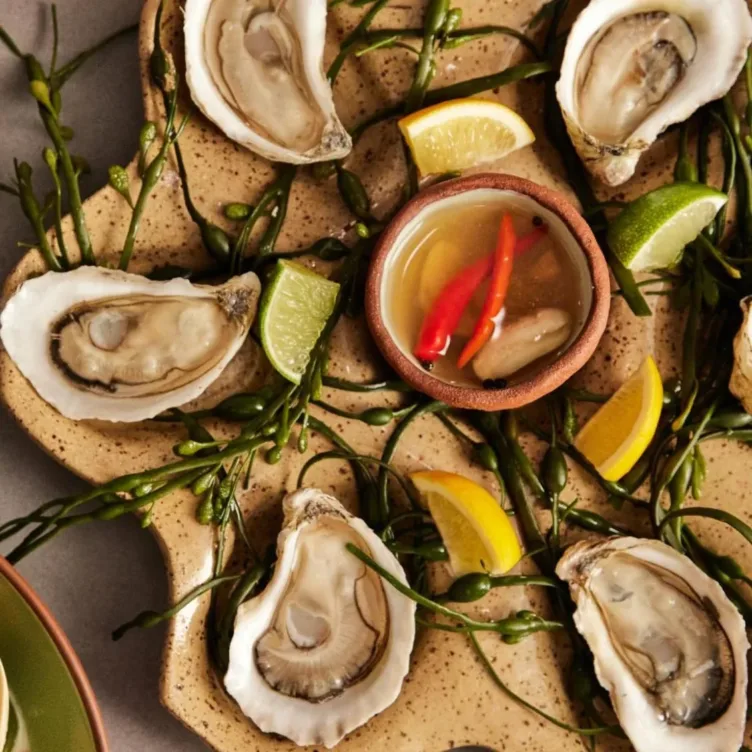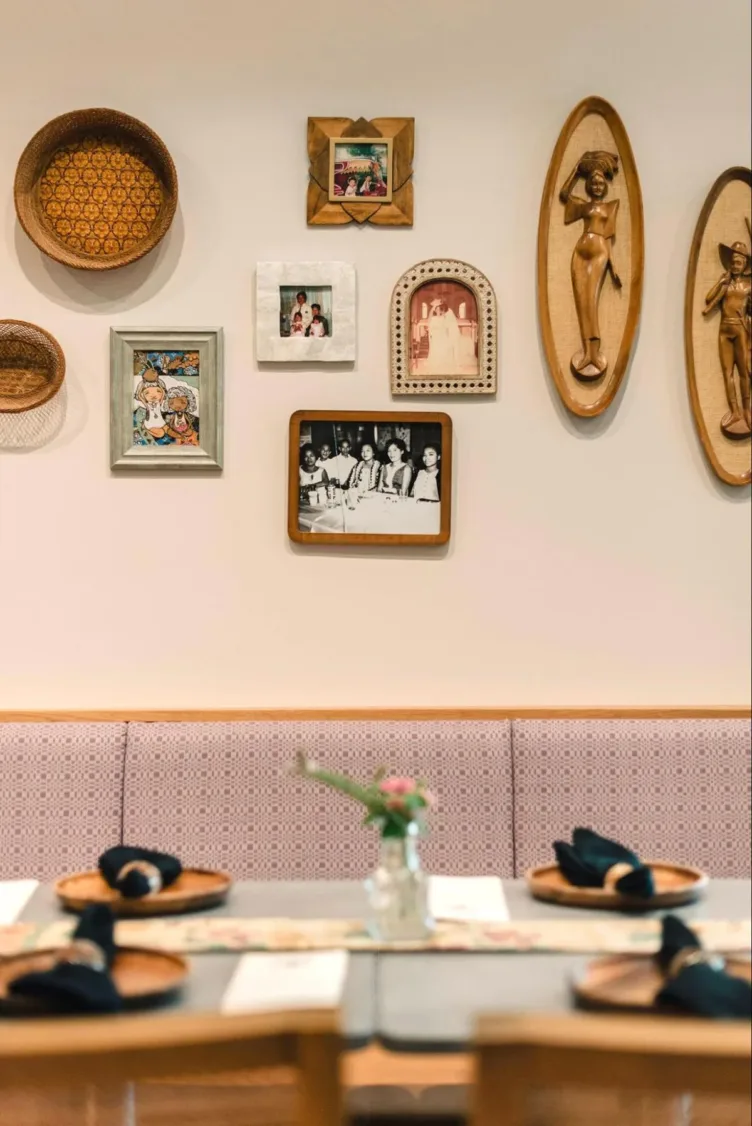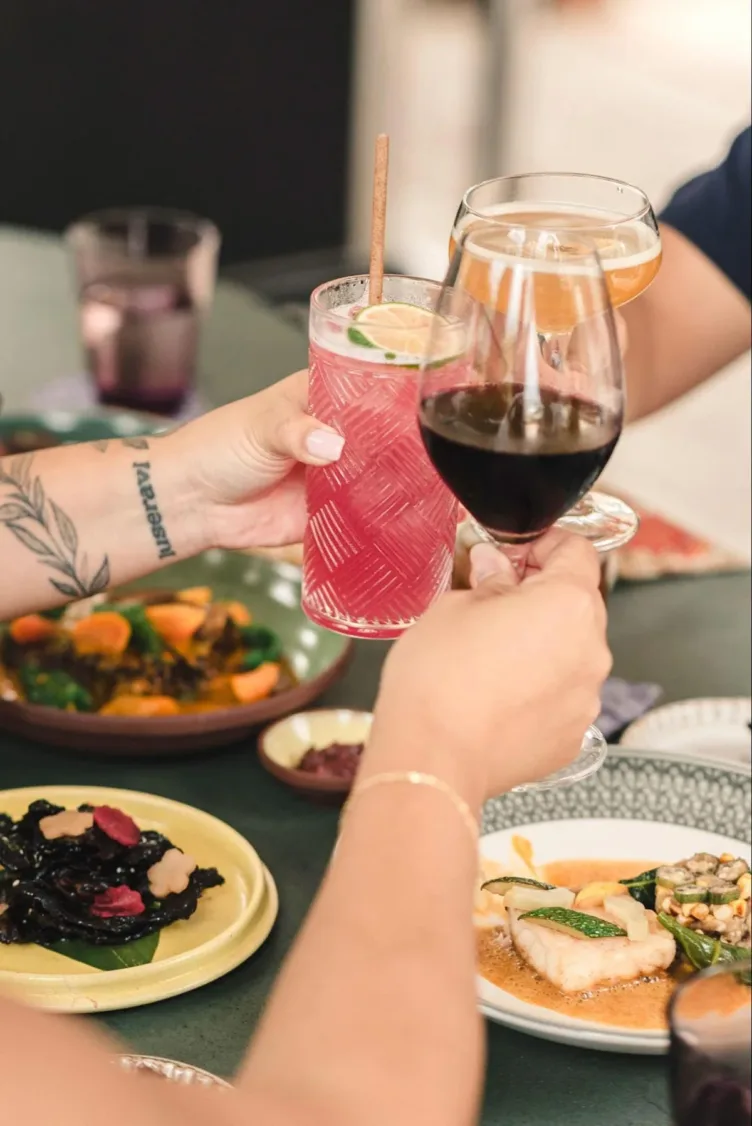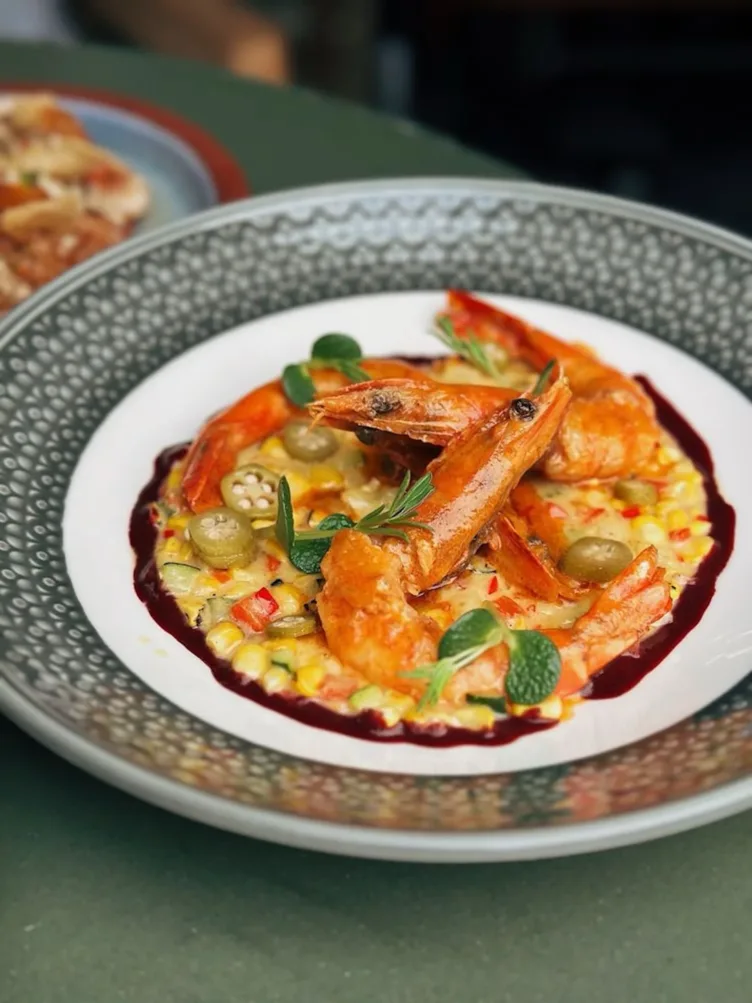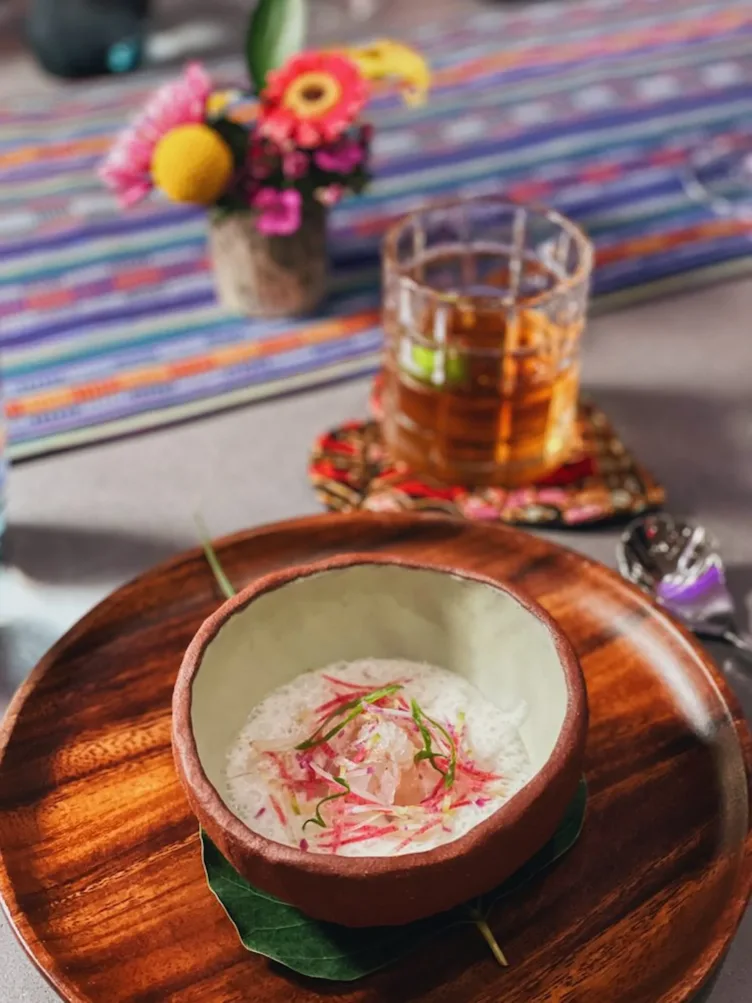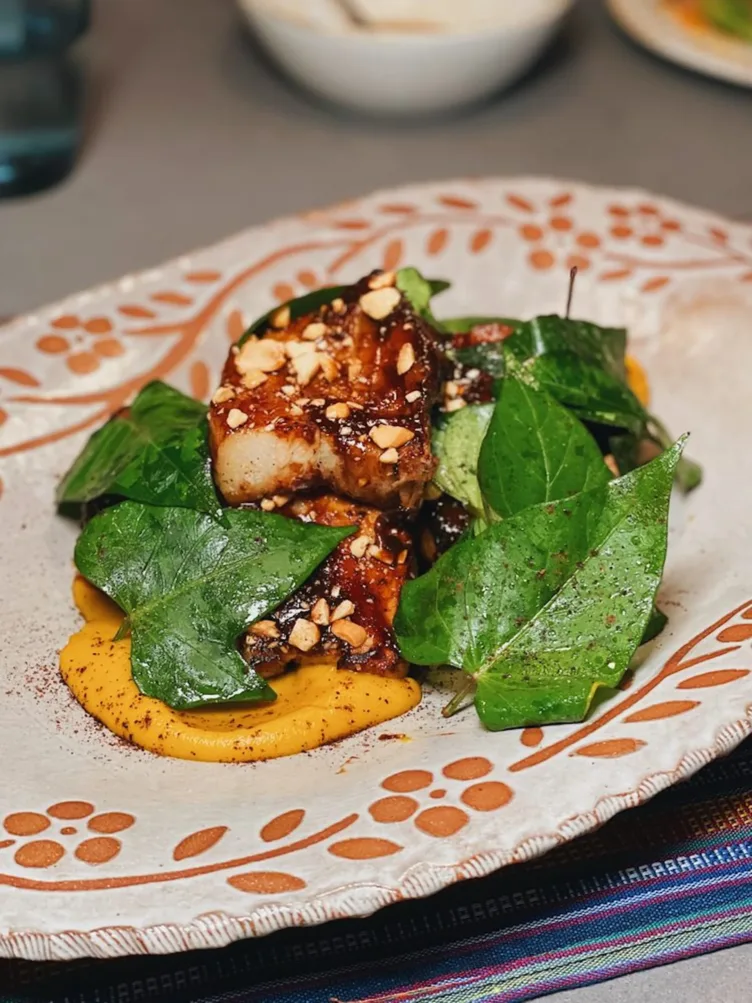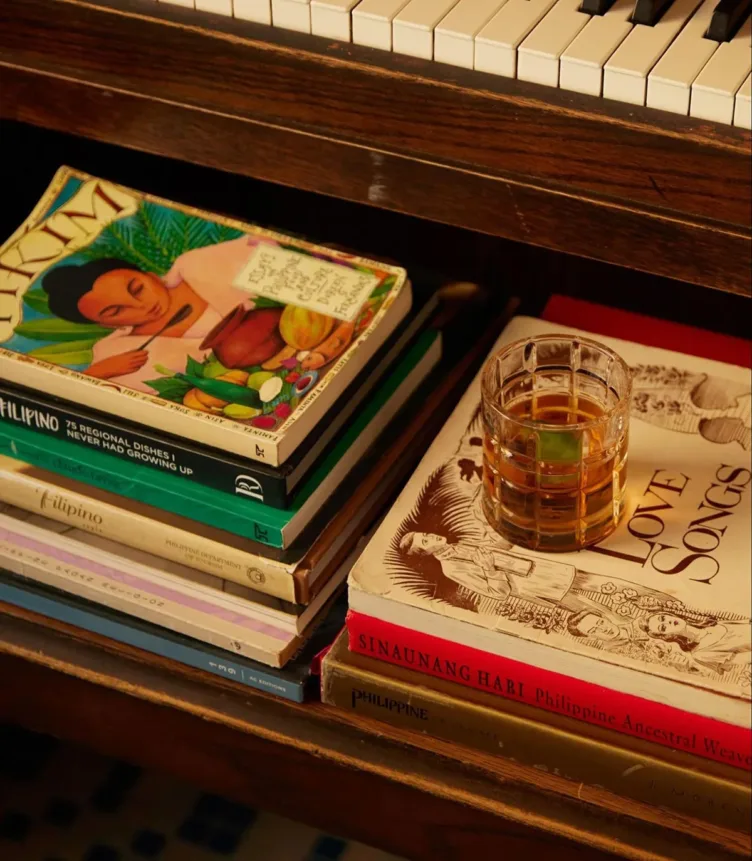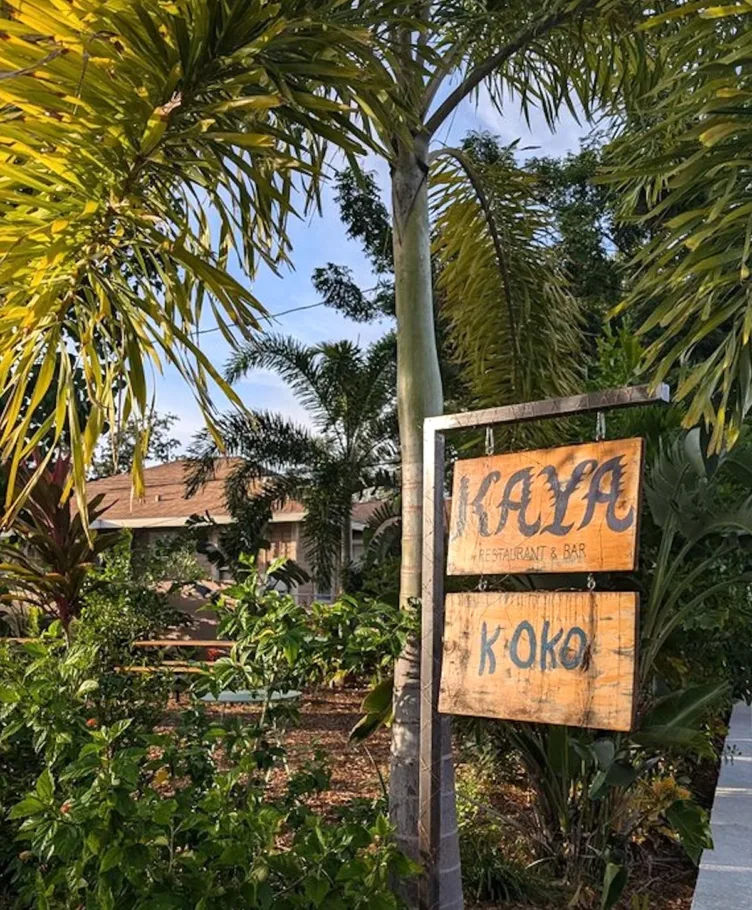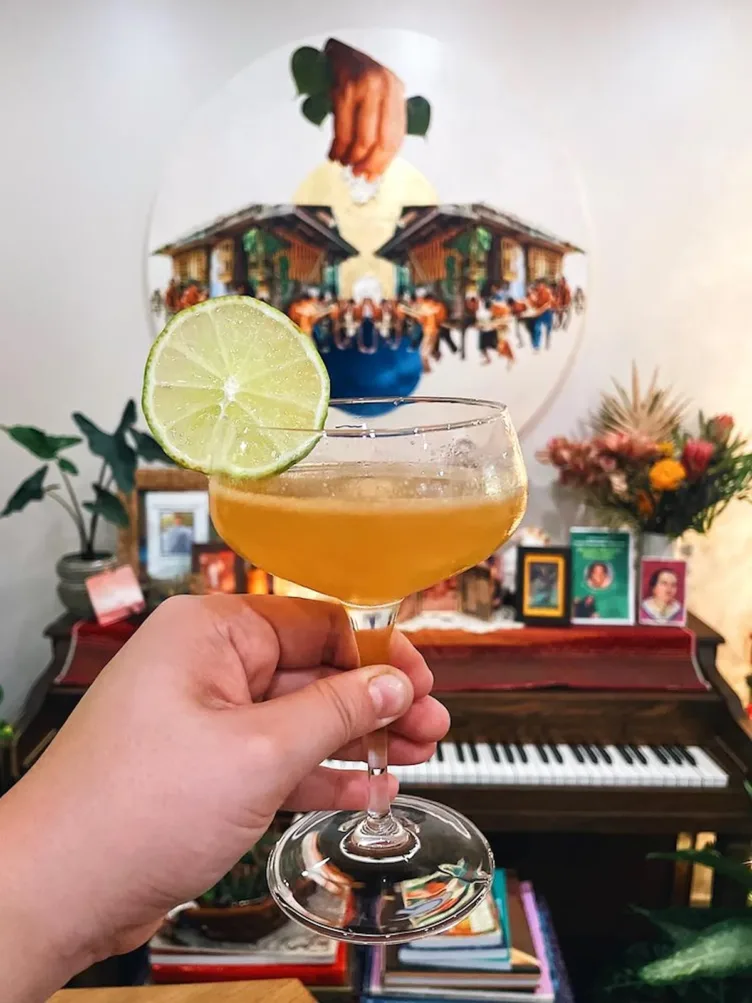The power of ‘we can’: how Kaya built a restaurant that feels like home
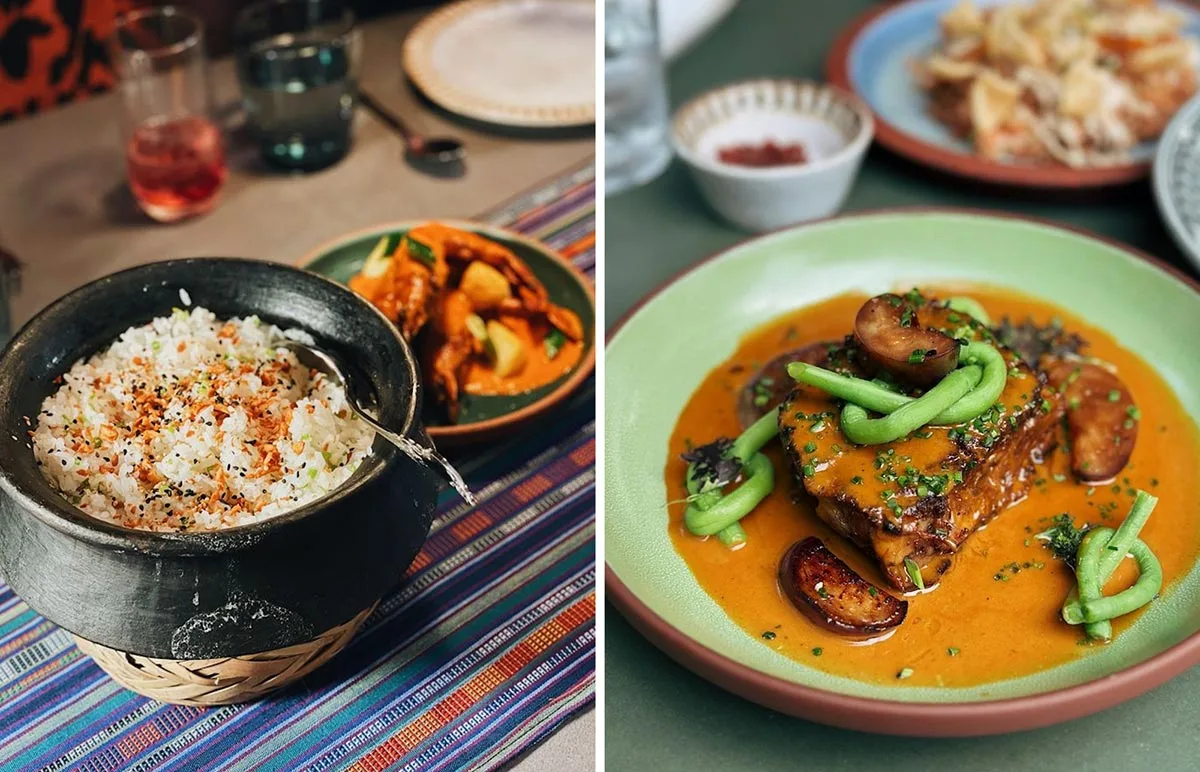
 Kaya in Orlando, Florida is ranked #10 on Yelp’s Top 100 Places To Eat in 2025.
Kaya in Orlando, Florida is ranked #10 on Yelp’s Top 100 Places To Eat in 2025.
Check out the rest of the eateries that made this year’s list, and catch up on stories of past winners.
Kaya’s fine-dining, Filipino cuisine earned it the #10 spot on Yelp’s Top 100 Places To Eat in 2025. But Kaya embodies far more than a restaurant—it’s a belief mindset, a cultural movement, and a community-oriented approach to hospitality. In Filipino, “Kaya” means “capable,” while “Kaya Natin” translates to “we can.” These statements epitomize the spirit of the Orlando, Florida establishment and the business owners who embody its community values.
“Kaya really is our rallying cry,” said co-owner Jamilyn “Jami” Salonga Bailey, who opened the restaurant in 2022. “We say it every day before service, putting our hands in the huddle with the whole team. Kaya Natin is a way to remind folks that what we’re doing is so much more than just putting food on a table, but really trying to foster connections in a way that is different from the standard way of operating a business.”
Photo of Kaya Executive Chef Lordfer Lalicon (left) and co-owner Jamilyn Salonga Bailey (right) leading a team huddle from Lee Romero
According to Jami, Kaya Natin also reflects the team’s commitment to giving back to the city that has helped it thrive: “We engage in many community efforts, from the way we work with local farms and try to prioritize local ecosystems—supporting small businesses in the area as much as possible—and the ways we hire and develop our staff relationships.”
Within just three years of operation, Kaya has become an Orlando staple—and its community-driven mission has earned it a Michelin Green Star (recognition in sustainable and ethical operational practices), a James Beard nomination, and a #10 spot on Yelp’s Top 100 Places to Eat. The restaurant quickly established its footing through a dedication to exceptional food and a deep appreciation for Filipino culture. But possibly its greatest achievement is building a loyal following—one that continues to grow through shared meals, shared memories, and shared stories.
Read more about how Kaya has established itself as a standout in the Orlando restaurant industry and beyond.
Bringing community and culture to the fine-dining table
For Jami and Executive Chef “Lo” Lordfer Lalicon, Kaya is more than their business—it is a statement of Filipino appreciation.
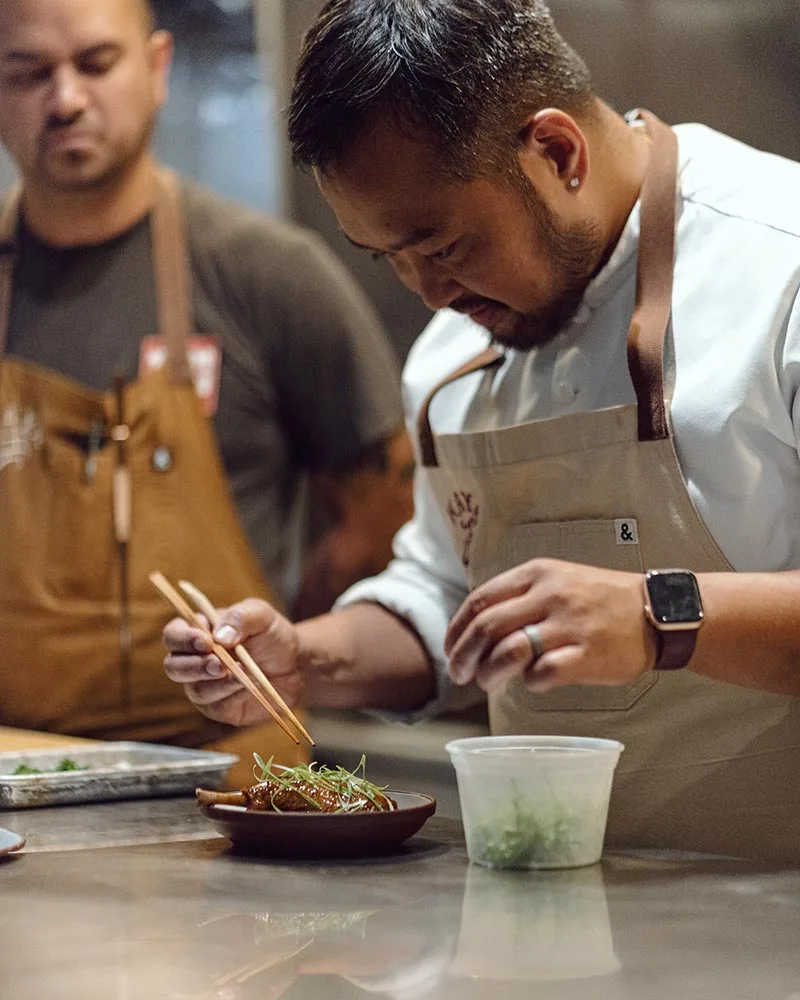
Photo of Chef Lo from Kaya
“For every fine-dining restaurant, your goal is to have delicious food. But your mission should really start with hospitality,” Chef Lo said. “In other fine-dining restaurants, there’s expectations of cuisine, white tablecloth, a certain way of doing things. We instead interpret fine dining as an opportunity to treat you like our friend, our family.”
“We’re going to explain the history of our food and make it feel very comfortable. A lot of people know Filipinos as being hospitable, and that is what we want to offer in our interactions. Our plates are handmade from friends of ours, and everything that we touch has been thoughtfully placed in our interpretation of fine dining.”
While Filipino food has long been a favorite among those familiar with it, it has yet to reach the mainstream rotation of fine-dining cuisines. Jami and Chef Lo view their restaurant as an opportunity to educate customers on Filipino cuisine through Kaya’s offerings.
“Filipino food is getting more accessible, and people are starting to learn more, but it’s not the kind of cuisine that the average person is thinking about for dinner every night. Sushi, pizza, chinese—Filipino is not yet in that rotation,” Chef Lo said.
Jami cites the values of Kaya Natin as integral to their take on the fine-dining experience: “Once our guests taste Filipino food, they’re excited, [saying:] ‘Wow, this is delicious. How come I’ve never had this before?’ Kaya Natin is really all of that. It’s also about how we build community and bring other folks along the way as we make that happen.”
Creating a menu model that encourages discovery
Jami and Chef Lo designed Kaya’s menu to introduce guests to Filipino cuisine in an inviting way. Diners can opt for an a la carte experience or choose a five-course “sama-sama” (means “together”) tasting menu.
“We started offering the sama-sama set menu because there’s not a ton of familiarity with Filipino food. It’s an opportunity to kind of sit back, relax, and let us take care of you. If you went to my house or you went to Lo’s for dinner, we would just feed you the best of what we had and what we think you’d like,” Jami said.
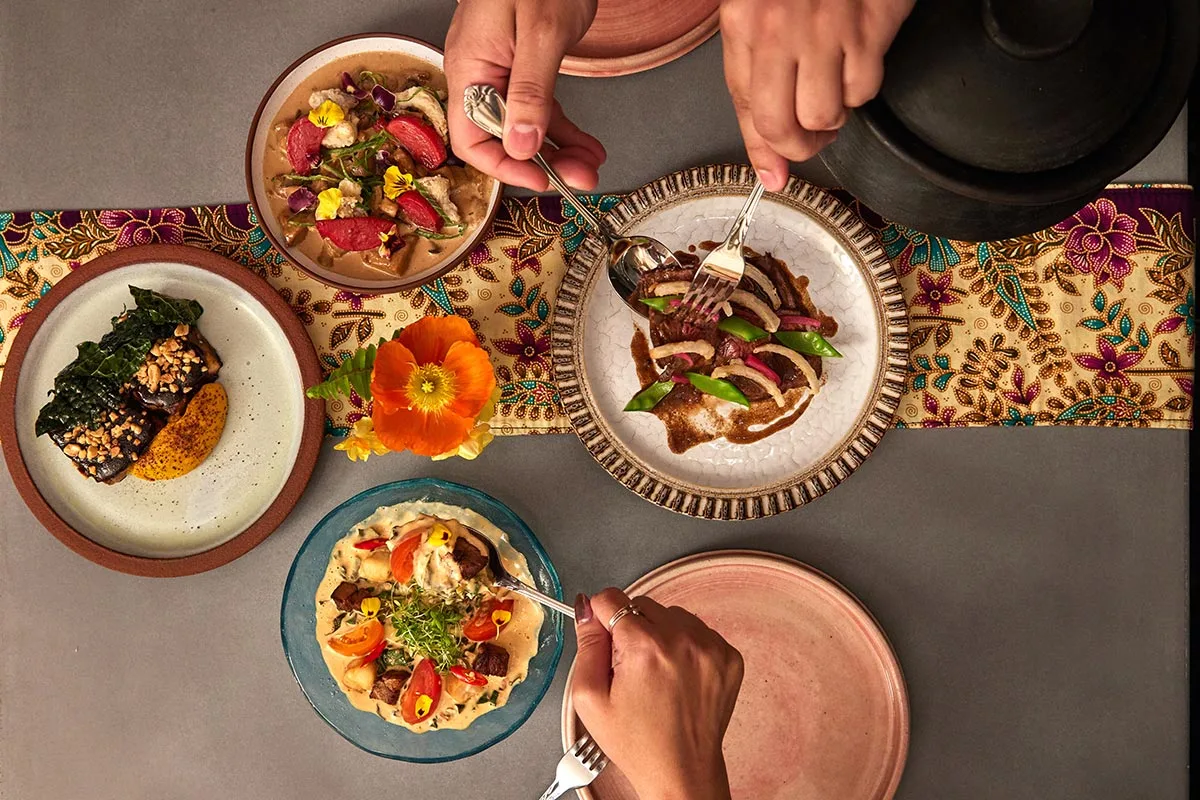
Photo of Kaya’s five-course “sama-sama” tasting menu from Blake Jones
The sama-sama menu also allows Kaya to be conscious of seasonal offerings and feature produce and seafood from local Orlando farms and vendors. “Our menu can be not only a story, but you can utilize things that typically people wouldn’t buy and also ingredients that you can’t get a lot of,” Chef Lo said.
If guests decide on a la carte, Jami also ensures a satisfying experience. “We also offer a la carte because sometimes people just want to come in, grab a couple things to sit at a table, gather with friends and choose what they want to eat. We just want to have options for folks to enjoy the restaurant in many different ways. At the heart, we want to be a neighborhood restaurant and bar, a place where people can go often and feel at home.”
Championing sustainability to build trust and authenticity
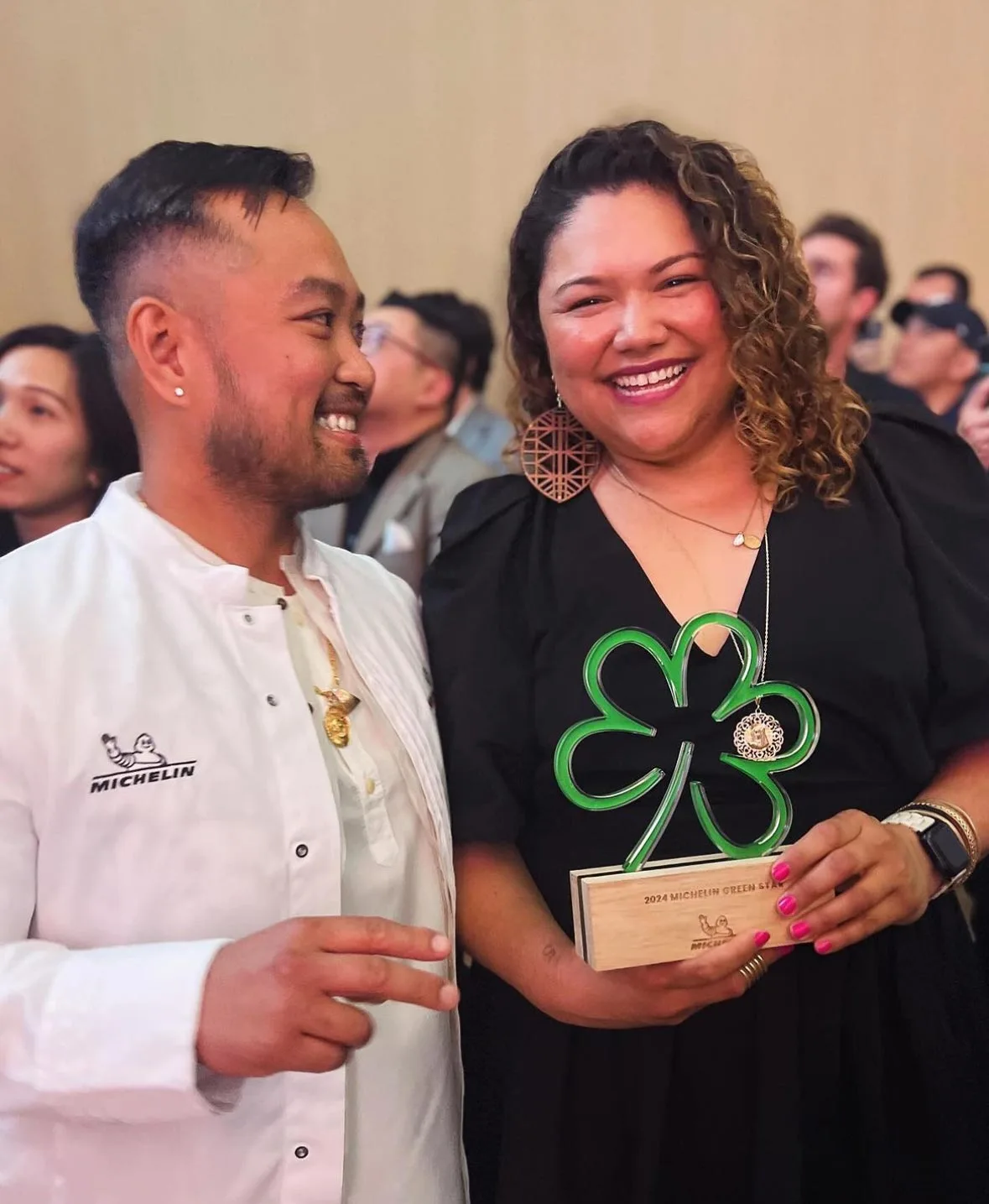
Photo of Chef Lo and Jami accepting Kaya’s Michelin Green Star by John Rife
Kaya’s commitment to sustainability earned it a Michelin Green Star in April 2024, an honor reserved for restaurants that lead the industry in eco-friendly practices. Jami and Chef Lo view this honor as an extension of the Kaya Natin spirit.
“The green star is about innovative and sustainable practices that not only include food but also how we treat our staff. It’s about being changemakers in our own community to create a sustainable effort as a restaurant and as a whole,” Jami said.
Kaya is dedicated to reducing waste at every stage of its operations and aims to be zero waste. “We try to utilize everything we can, from making stocks from our vegetable trims to making purees in our cocktails—it also helps us save money,” Jami said. The team composts any food waste they can’t repurpose, so nothing ends up in the landfill.
It’s not easy being an independent restaurant in the climate that we’re in. We want to continue to push ourselves to be the best we can be, and then hoping that the community can see that what we do affects change.
— Chef “Lo” Lordfer Lalicon, Kaya
Kaya’s approach to sustainability extends beyond food waste. The restaurant prioritizes sourcing from small-scale local farms, ensuring its ingredients are not only fresh, but also ethically grown. “Sourcing locally is about impacting your community and really just getting better food,” Chef Lo said. “The first thing a chef wants to do is work with local produce [from a farm] that grows things organically and sustainably because the food just tastes better and it’s easier to work with.”
Be more than a restaurant—appeal as a communal gathering hub
Kaya is known as a place to gather, not just a place to eat. With its Bayani Bar, an outdoor tropical patio space, the restaurant has become a hub for local events and celebrations.
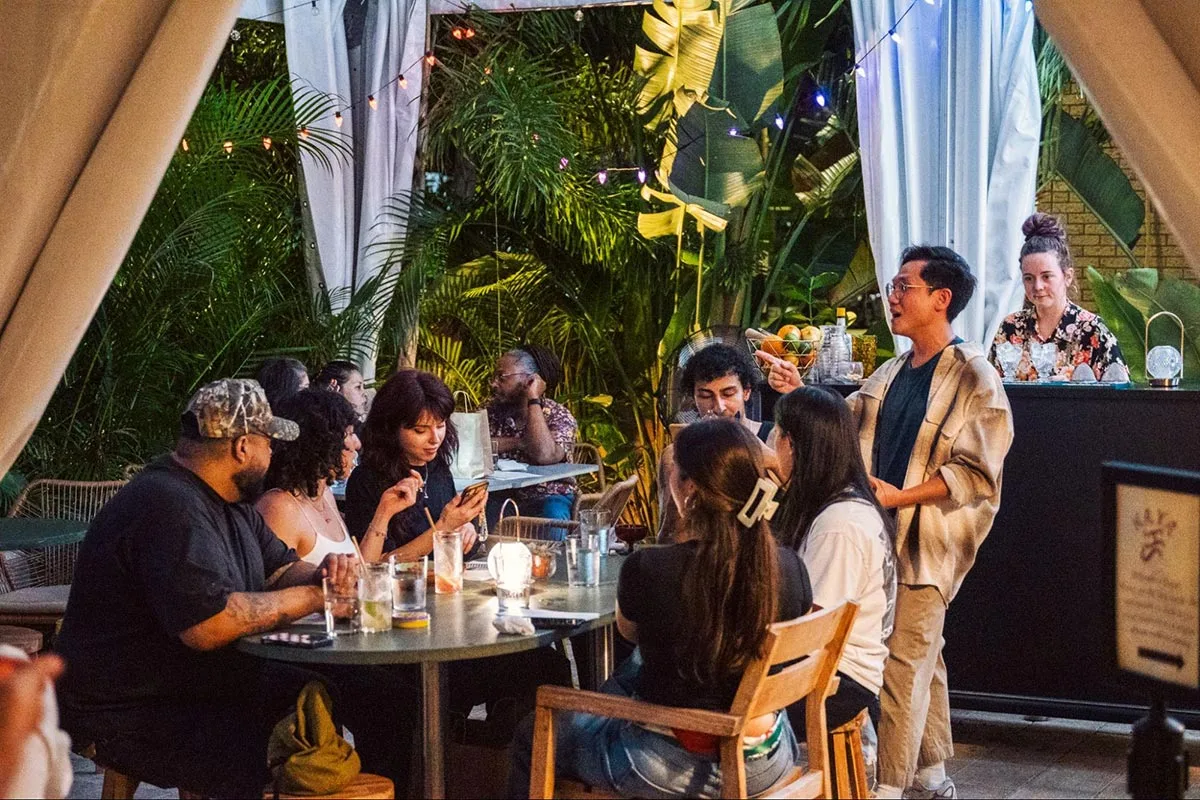
Photo of guests at Kaya’s Bayani Bar from Raphael Loquellano
Tuesdays feature guest chef pop-ups highlighting rising talent in the local culinary scene. Wednesdays are karaoke nights. “Karaoke is the national sport of the Phillippines,” Jami said. “We also do live music. Kaya’s the house and I say that Bayani Bar is the backyard where all the cousins hang out drinking, eating, and having a good time.”
The bar’s beverage program is also rooted in local, sustainable offerings. “We craft cocktails that take advantage of the trim from the kitchen,” Jami said. We have a natural wine program that’s run by Heather Lavine, a local business owner, who puts a lot of attention to detail in the types of wines we bring in, mostly because they’re aligned with our ethos around farming.”
Beyond weekly events, Kaya also participates in larger cultural celebrations, such as the Barangay Festival and Filipino Freedom Fest around Filipino Independence Day, which brings together local businesses, musicians, and artists to celebrate shared heritage.
“We always say that a rising tide lifts all boats,” Jami said. “We invite other local Filipino businesses to pop up, have a market, share their food, and celebrate our culture while being together and uplifting one another.”
Bringing Kaya spirit into the world
As Kaya continues to thrive, Jami and Chef Lo are excited to share their core principles with others in the restaurant industry.
“Our goal is to bring as much Kaya spirit to the world as we can. It’s continuing to do what we do while refining who we are,” Chef Lo said. “It’s not easy being an independent restaurant in the climate that we’re in. We want to continue to push ourselves to be the best we can be, and then hoping that the community can see that what we do affects change.”
Kaya’s team celebrates the relationship between food and personal connection. Their leadership values its mission to rekindle emotions, bridge generations, and preserve cultural heritage through each meal.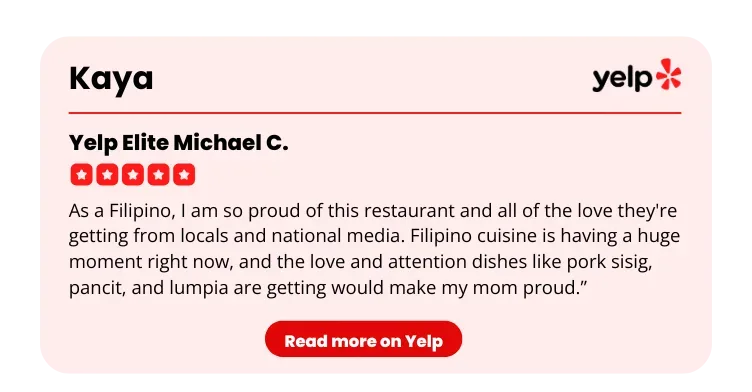
Reviews like this are a guiding reminder of Kaya’s central mission.
“As Filipino Americans and folks who are trying to make our people proud, it really means a lot when I read a Yelp review from someone who’s able to tap into a family memory, or Kaya reminds them of their childhood or a loved one,” Jami said. “Being able to help make that connection is a huge part of what makes food so powerful.”
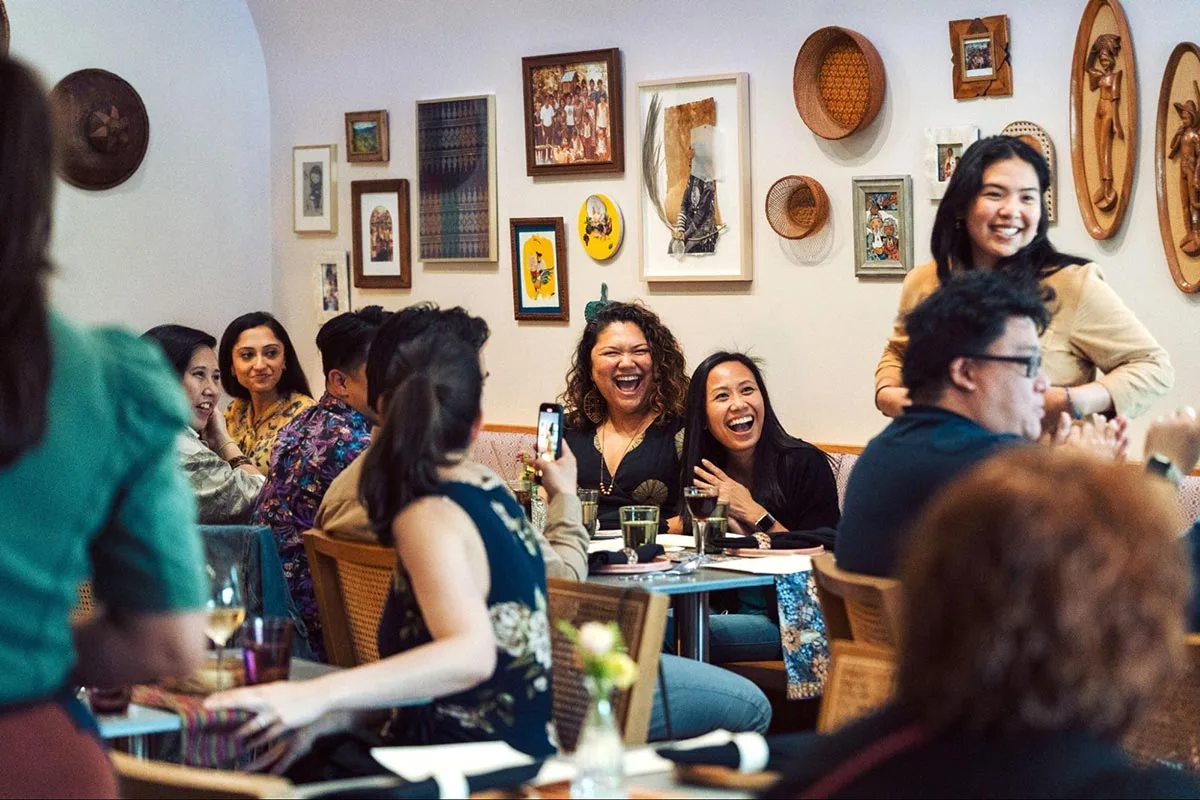
Photo from Raphael Loquellano
